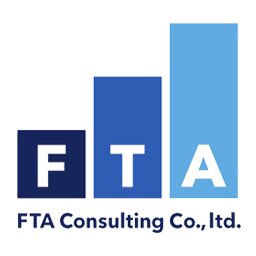ทนายความ การคว่ำบาตรและการควบคุมการส่งออก ที่ดีที่สุดใน จตุจักร
แบ่งปันความต้องการของคุณกับเรา รับการติดต่อจากสำนักงานกฎหมาย
ฟรี ใช้เวลา 2 นาที
รายชื่อทนายความที่ดีที่สุดใน จตุจักร, ประเทศไทย
1. เกี่ยวกับกฎหมายการคว่ำบาตรและการควบคุมการส่งออกในจตุจักร, ประเทศไทย
กฎหมายคว่ำบาตรและการควบคุมการส่งออกเป็นกรอบกฎหมายระดับชาติที่บังคับใช้ทั่วประเทศ รวมถึงเขตจตุจักรในกรุงเทพฯ ทรัพย์สินและกิจกรรมที่ห้ามมักเกี่ยวข้องกับการส่งออกไปยังประเทศหรือตัวละครที่ถูกคว่ำบาตรหรือจำกัดการค้า
ในทางปฏิบัติ หน่วยงานรัฐบาลทั้งด้านการค้าและศุลกากรจะรับผิดชอบตรวจสอบการส่งออก การขนส่ง และการใช้งานสินค้าควบคุม พิมพ์เขียวการอนุญาตจะกำหนดโดยใบอนุญาตจากกระทรวงพาณิชย์หรือตามข้อกำหนดของ UN หรือมาตรการต่อต้านภัยสงคราม
ผู้ประกอบการในจตุจักรที่ดำเนินธุรกิจส่งออก-นำเข้า มืออาชีพทางกฎหมายหรือที่ปรึกษากฎหมายควรอ้างอิงกับเอกสารกระทรวงพาณิชย์และกรมศุลกากร เพื่อปฏิบัติตามข้อกำหนด และหลีกเลี่ยงโทษทางแพ่งหรืออาญา
2. ทำไมคุณอาจต้องการทนายความ
ในจตุจักรมีสถานการณ์จริงที่อาจต้องทนายความเฉพาะด้านคว่ำบาตรและการควบคุมการส่งออก เช่น
- ส่งออกสินค้าควบคุมโดยไม่มีใบอนุญาต อาจถูกระงับสัญญา หรือถูกอายัดทรัพย์ ตรวจสอบสถานะใบอนุญาตและการย้ายสินค้า
- ถูกตรวจสอบโดยเจ้าหน้าที่ศุลกากร เมื่อสินค้าถูกสงสัยว่าเข้าข่ายสินค้าควบคุม หรือการใช้งานที่ไม่ถูกต้อง
- ข้อพิพาทคู่สัญญาเรื่อง End-Use End-User ที่อาจทำให้การส่งออกถูกระงับหรือเรียกคืน
- การยื่นคำร้องขอใบอนุญาตส่งออกล่าช้าหรือปฏิเสธ ทำให้โครงการล่าช้าและเสียค่าใช้จ่ายสูง
- ข้อความห้ามหรือข้อหาประสงค์ร่วมกับบุคคลหรือองค์กรในจตุจักร ที่อาจเกิดความเสี่ยงทางกฎหมายต่อธุรกิจ
- การคงอยู่ของสัญญาต่างประเทศ ที่ต้องตีความข้อบังคับระหว่างประเทศกับกฎหมายไทย
ทนายความจะช่วยคัดกรองข้อกำหนด ใบอนุญาตที่เกี่ยวข้อง และออกแบบกลยุทธ์ปฏิบัติตามที่สอดคล้องกับข้อบังคับในท้องถิ่น
3. ภาพรวมกฎหมายท้องถิ่น
พระราชบัญญัติการส่งออกและนำเข้า (Export Control Act) พ.ศ. 2560 ถือเป็นกรอบหลักในการควบคุมการส่งออกวัตถุที่มีการใช้งานสองอย่างและวัตถุที่มีความเสี่ยงต่อความมั่นคงของชาติ มีการออกข้อบังคับเพิ่มเติมผ่านประกาศกระทรวงพาณิชย์
พระราชบัญญัติศุลกากร พ.ศ. 2469 กำหนดกรอบการนำเข้า-ส่งออก รหัสสินค้าระดับศุลกากร และบทลงโทษสำหรับการละเมิดระเบียบการศุลกากร
จตุจักรในกรุงเทพฯ จะถูกดูแลบังคับใช้โดยสำนักงานศุลกากรพื้นที่กรุงเทพมหานคร และกรมการค้าระหว่างประเทศที่มีบทบาทกำกับการออกใบอนุญาตและการตรวจสอบการส่งออก-นำเข้า
เพื่อความชัดเจน แหล่งข้อมูลทางกฎหมายระบุไว้ในเว็บไซต์ทางการ ได้แก่ กรมศุลกากร และกระทรวงพาณิชย์ ซึ่งมุ่งเน้นการชี้แนะเรื่องใบอนุญาต การรายงาน และข้อกังวลด้านความปลอดภัยของการค้า
อ้างอิง: กรมศุลกากร และ กระทรวงพาณิชย์ ให้ข้อมูลเกี่ยวกับการควบคุมการส่งออกและใบอนุญาตในระบบราชการไทย
4. คำถามที่พบบ่อย
อะไรคือขอบเขตของการคว่ำบาตรที่ครอบคลุมในจตุจักร?
ขอบเขตครอบคลุมสินค้าหรือบริการที่ถูกระบุในรายการคว่ำบาตร และการดำเนินการทางการค้ากับบุคคลที่อยู่ในรายการนั้น ผู้ดำเนินธุรกิจควรตรวจสอบก่อนทำสัญญา
อย่างไรที่ฉันจะทราบว่าสินค้าของฉันเข้าข่ายควบคุมการส่งออก?
คุณต้องตรวจสอบชนิดสินค้า จำนวนคู่มือการใช้งาน และ End-Use End-User กับใบอนุญาตที่เกี่ยวข้องจากกระทรวงพาณิชย์ และกรมศุลกากร
เมื่อไหร่ฉันควรยื่นขอใบอนุญาตส่งออกล่วงหน้า?
เมื่อสินค้าติดอยู่ในรายการสินค้าควบคุมหรือมีการใช้งานทางทหาร สารเคมี หรือเทคโนโลยีที่มีการควบคุมตาม Export Control Act ต้องยื่นล่วงหน้า
ที่ไหนฉันสามารถยื่นขอใบอนุญาตส่งออก?
ใบอนุญาตมักยื่นผ่านกรมการค้าระหว่างประเทศ หรือหน่วยงานที่เกี่ยวข้อง โดยกระทรวงพาณิชย์จะเป็นผู้อนุมัติและออกใบอนุญาต
ทำไมการคว่ำบาตรถึงมีโทษทางอาญา?
การฝ่าฝืนข้อห้ามส่งออกอาจนำไปสู่โทษจำคุกและปรับทางอาญา ขึ้นกับระดับความผิดและประเภทของสินค้าควบคุม
สามารถทบทวนการปฏิบัติตามกฎหมายคว่ำบาตรได้อย่างไร?
การตรวจสอบภายในองค์กรโดยทนายความด้านกฎหมายการค้า และการทำ Due Diligence ที่รอบคอบจะช่วยระบุความเสี่ยงและความจำเป็นในการปรับปรุงนโยบาย
ควรมีเอกสารอะไรบ้างก่อนส่งออก?
ใบอนุญาตจากหน่วยงานที่เกี่ยวข้อง, ข้อมูล End-User, สเปคสินค้า และสัญญาซื้อขาย พร้อมระบุประเทศปลายทาง
ระยะเวลาการขอใบอนุญาตมักใช้เวลานานแค่ไหน?
โดยทั่วไปการพิจารณาอยู่ที่ 4-12 สัปดาห์ ขึ้นกับความซับซ้อนของสินค้าและ End-User
ฉันต้องการทำการเปรียบเทียบระหว่างใบอนุญาตหรือไม่?
ใช่ ควรตรวจสอบชนิดใบอนุญาตและข้อกำหนดเปรียบเทียบ เพื่อเลือกขั้นตอนที่เหมาะสมและลดความล่าช้า
ฉันควรปรึกษาทนายเมื่อใด?
เมื่อคุณมีข้อสงสัยเรื่องข้อห้าม การยื่นขอใบอนุญาต หรือกรณีที่ถูกตรวจสอบโดยเจ้าหน้าที่ ควรปรึกษาทันที
ฉันจะตรวจสอบรายการสินค้าควบคุมได้จากที่ไหน?
ตรวจสอบกับหน่วยงานกระทรวงพาณิชย์และกรมศุลกากรโดยตรง เพื่ออัปเดตข้อมูลรายการและข้อกำหนดล่าสุด
ควอนซ์คำตอบ: ฉันสามารถดำเนินการเองทั้งหมดได้หรือไม่?
ส่วนใหญ่ต้องการใบอนุญาตและคำแนะนำจากผู้เชี่ยวชาญ โดยเฉพาะกรณีสินค้าควบคุมทางเทคนิคหรืออุปกรณ์วิทยาศาสตร์
5. ทรัพยากรเพิ่มเติม
ต่อไปนี้เป็นแหล่งข้อมูลทางการที่เกี่ยวข้องกับการคว่ำบาตรและการควบคุมการส่งออก
- กรมศุลกากร - ขอบเขตการนำเข้า-ส่งออก ใบอนุญาต และข้อห้าม
- กระทรวงพาณิชย์ - นโยบายการค้าระหว่างประเทศ และใบอนุญาตส่งออก
- ราชกิจจานุเบกษา - พระราชบัญญัติ กฎหมายที่เกี่ยวข้อง และประกาศราชกิจจาฯ
6. ขั้นตอนถัดไป
- ระบุสินค้าและผู้รับผิดชอบด้านการส่งออก-นำเข้าในธุรกิจของคุณ
- ตรวจสอบรายการสินค้าควบคุมด้วยตนเอง จากนั้นจดบันทึกคำถามหลัก
- นัดปรึกษาทนายความด้านการคว่ำบาตรและการส่งออกที่จตุจักร
- รวบรวมเอกสารสินค้า ใบอนุญาต End-User และสัญญาค้าขาย
- ให้ทนายความประเมินความเสี่ยงและออกแบบแผนปฏิบัติตาม
- ยื่นคำขอใบอนุญาต (หากจำเป็น) และติดตามสถานะ
- จัดทำคู่มือภายในองค์กรสำหรับการคงมาตรการคว่ำบาตรและการส่งออก
Lawzana ช่วยคุณค้นหาทนายความและสำนักงานกฎหมายที่ดีที่สุด ใน จตุจักร ผ่านรายชื่อผู้เชี่ยวชาญด้านกฎหมายที่มีคุณสมบัติเหมาะสมที่คัดสรรและตรวจสอบล่วงหน้า แพลตฟอร์มของเรานำเสนอการจัดอันดับและโปรไฟล์โดยละเอียดของทนายความและสำนักงานกฎหมาย ช่วยให้คุณเปรียบเทียบตามสาขากฎหมาย รวมถึง การคว่ำบาตรและการควบคุมการส่งออก ประสบการณ์ และความคิดเห็นของลูกค้า
แต่ละโปรไฟล์ประกอบด้วยคำอธิบายเกี่ยวกับสาขากฎหมายของสำนักงาน รีวิวจากลูกค้า สมาชิกในทีมและหุ้นส่วน ปีที่ก่อตั้ง ภาษาที่พูด ที่ตั้งสำนักงาน ข้อมูลการติดต่อ การมีตัวตนบนโซเชียลมีเดีย และบทความหรือแหล่งข้อมูลที่เผยแพร่ สำนักงานส่วนใหญ่บนแพลตฟอร์มของเราพูดภาษาอังกฤษและมีประสบการณ์ทั้งในเรื่องกฎหมายท้องถิ่นและระหว่างประเทศ
ขอใบเสนอราคาจากสำนักงานกฎหมายชั้นนำ ใน จตุจักร, ประเทศไทย — รวดเร็ว ปลอดภัย และไม่ยุ่งยาก
ข้อจำกัดความรับผิดชอบ:
ข้อมูลที่ให้ไว้ในหน้านี้มีวัตถุประสงค์เพื่อเป็นข้อมูลทั่วไปเท่านั้นและไม่ถือเป็นคำแนะนำทางกฎหมาย แม้ว่าเราจะพยายามตรวจสอบความถูกต้องและความเกี่ยวข้องของเนื้อหา แต่ข้อมูลทางกฎหมายอาจเปลี่ยนแปลงได้ตามกาลเวลา และการตีความกฎหมายอาจแตกต่างกันไป คุณควรปรึกษาผู้เชี่ยวชาญด้านกฎหมายที่มีคุณสมบัติเหมาะสมเพื่อขอคำแนะนำเฉพาะสำหรับสถานการณ์ของคุณเสมอ
เราปฏิเสธความรับผิดทั้งหมดสำหรับการกระทำที่ทำหรือไม่ทำตามเนื้อหาในหน้านี้ หากคุณเชื่อว่าข้อมูลใดไม่ถูกต้องหรือล้าสมัย โปรด contact us และเราจะตรวจสอบและแก้ไขตามความเหมาะสม










